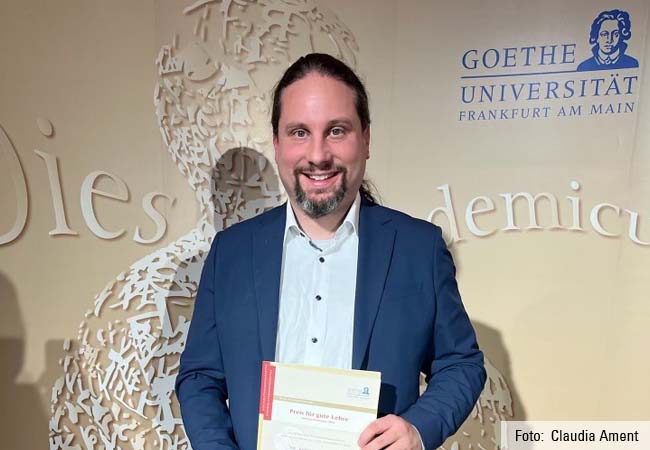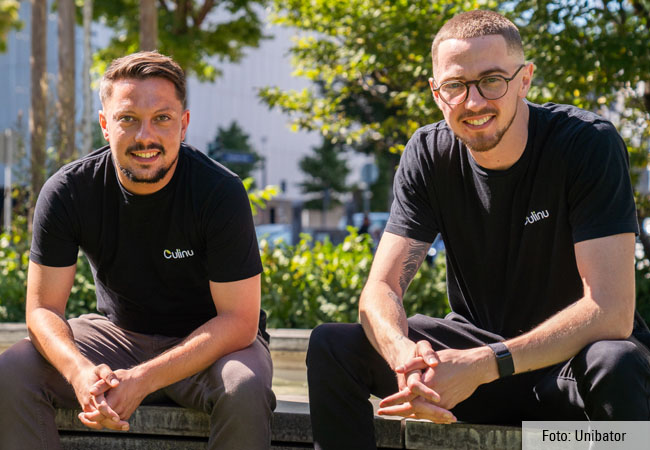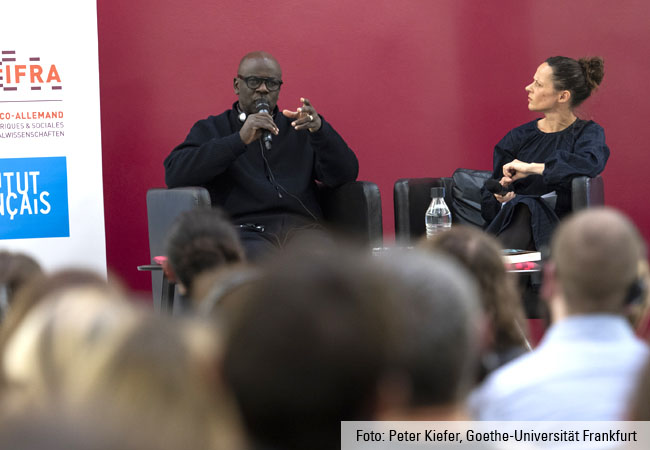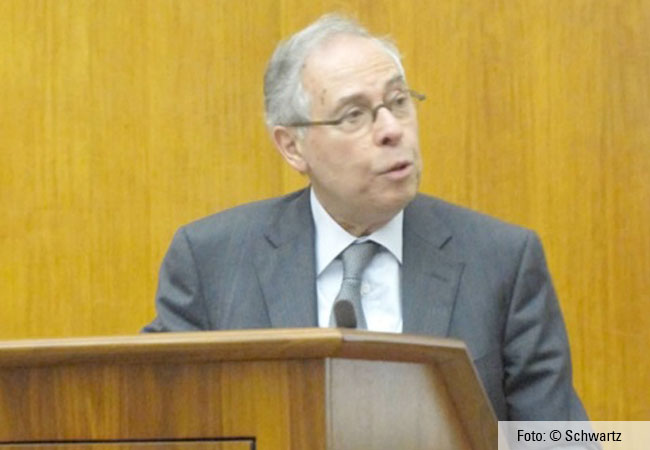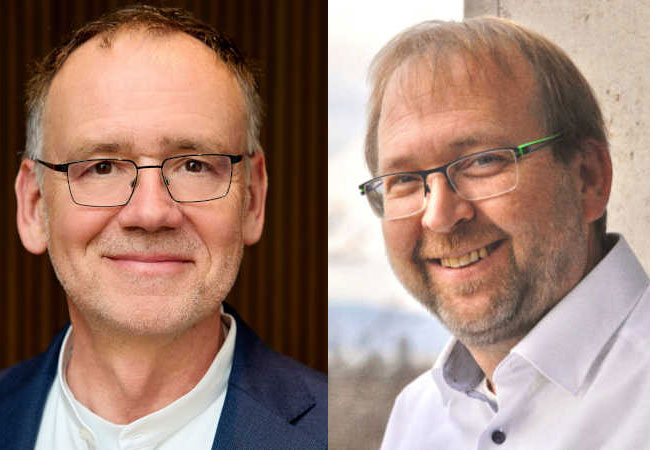Ute Lewitzka brings her expertise and commitment in the destigmatization of mental illness to Goethe University Frankfurt.
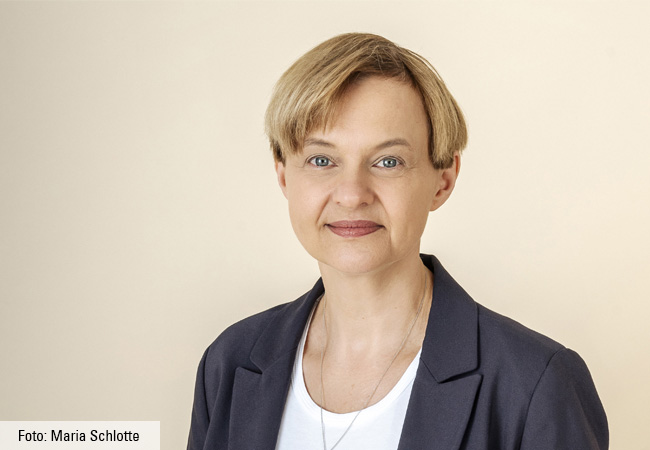
It took some time for her wish to come true – after all, Ute Lewitzka has long been working towards establishing a chair dedicated to suicide studies in Germany. On November 1, 2024, the erstwhile dream became reality, as Goethe University set up the first professorship of this type anywhere in Germany. Even though research into suicide is a niche subject within the wider field of psychiatry, its social importance is incontestable. Suicide affects people from all age groups and all social-economic backgrounds. Last year more than 10,000 people took their own lives in Germany – a number that has remained almost the same for the past 20 years. The number of attempted suicides is estimated to be 10 to 20 times as high, although experts believe the real figure to be much higher. However, the incomplete data – itself the result of a variety of different factors – makes effective prevention difficult. “The more we know about suicides and attempted suicides, the better the prevention measures we can develop,” Lewitzka underscores, adding: “and the better the help we can provide to those affected.”
It is not by chance that the chair of suicide studies and suicide prevention has been established at Goethe University. It is located within the Faculty of Medicine or, to be more precise, in its Department of Psychiatry, Psychosomatic Medicine and Psychotherapy. This hospital is one of the leading facilities – both in Germany and by international comparison – in the field of mood disorders, and has already received several awards for its excellent treatment of patients. Research is also held in high esteem, as illustrated by the commitment of department director Prof. Andreas Reif, who in recent years introduced permanent structures in suicide prevention and the associated research, and supported the professorship’s establishment. “I’m very grateful to him for his unswerving support,” Lewitzka emphasizes. The chair is funded by University Hospital Frankfurt along with Dr. Elmar und Ellis Reiss Stiftung, Crespo Foundation, and Henryk Sznap Stiftung.
Ever since her specialist medical training at Dresden University Hospital, Ute Lewitzka has been supporting people with mood disorders – which time and again included suicidal patients. “It’s very humbling to be with people in such an elementary crisis,” she says. “There is something existential about experiencing how the situation gets better again, which also helps one express this hope that things will improve time and again.” It is this notion of “it will get better again” coupled with the aspiration to reduce the number of suicides that serve as the two greatest motivations for her research. Lewitzka’s doctorate, completed twenty years ago, already dealt with neurotransmitter changes in suicidal patients, and she has been captivated by suicide studies ever since. The Suicide Research group she set up in 2005 ran has run numerous clinical research projects on questions in suicide studies – frequently in cooperation with other disciplines (e.g. gynecology, neurology, psycho-oncology). From 2008 to 2010, Lewitzka headed the psychiatric acute care unit at Dresden University Hospital’s Department of Psychiatry. From 2010 to 2012 she was Visiting Assistant Professor at Dalhousie University in Halifax (Canada), where her research focused on children whose parents suffered from a bipolar disorder. On returning to Germany, she focused on her research work and for her Habilitation investigated the influence of lithium on suicidality and affective disorders.
Voluntary work beyond the hospital’s confines has always been important to Lewitzka. In 2017 she founded the Werner-Felber-Institut für Suizidprävention und interdisziplinäre Forschung im Gesundheitswesen [Werner Felber Institute for Suicide Prevention and Interdisciplinary Research in the Health System, WFI] and in 2018 became chair of Deutsche Gesellschaft für Suizidprävention [German Society for Suicide Prevention]. With these non-profit organizations she aims in particular to network the different players and break the taboo surrounding suicide. “The destigmatization of mental illness has a crucial role to play in prevention,” Lewitzka explains. “In addition to the lack of information about available assistance, feelings of shame among those affected also make it less likely that people will seek help.”
One such prevention project is the HEYLiFE network in Saxony, which organizes workshops at schools to sensitize young people and teachers to the topic of suicidality. The focus lies on passing on knowledge, specific coping strategies and communication about psychological problems. In the project’s first year, several thousand young people attended relevant workshops at secondary schools; Lewitzka’s team in Dresden was tasked, among others, with evaluating the project, whose results are especially encouraging: Following the workshop, young people felt better prepared and more ready to seek help for themselves or their schoolmates. It bears special mention that this effect was produced by a one-off, three-hour workshop, whose positive effects remained evident up to six months later. Lewitzka is already in contact with a similar suicide prevention project in Frankfurt. Other players in the Rhine-Main region will also cooperate closely with the new professorship, including emergency call centers. In Saxony, the latter were successfully involved in a project run by Lewitzka and her colleagues, which researched suicide attempts and actual suicides. The systematic recording of emergency calls enables the researchers to regularly analyze the locations and methods used in suicide, with the aim of developing preventive measures.
Although in-depth knowledge on suicide prevention exists, the measures are often not implemented in practice – a situation Lewitzka regards as unacceptable. “We actually the measures that can prevent suicides very well. Unfortunately, however, political and economic considerations also play a role,” she points out. Lewitzka hopes the new chair will provide “extra leverage” in socio-political discussions. She is also particularly looking forward to teaching, and enthusiastically recalls an elective subject she organized in the past with a very varied group of experts. “If I can get medical students interested in the topic and support the next generation of researchers, that will be a huge achievement.”
Phyllis Mania
German Help Resources for Those Affected and Their Families
Cost-free Consultation Hour for Depression at Goethe University →
(Mondays 12:00 noon to 1:00 p.m.)
Psychological Student Counselling at Goethe University →
Employee Psychological Counselling at Goethe University →
Telephone Counselling Service: 1110111
Telephone hotlines: 116 123 (for children and young people), 116 111 (for parents)


